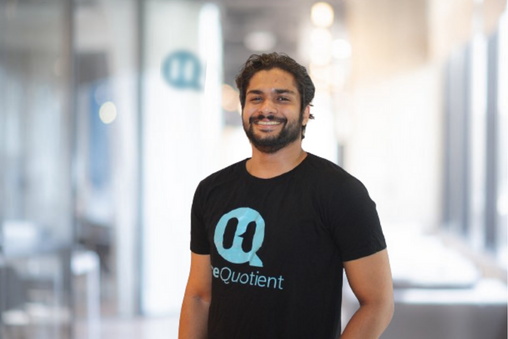Top Interview Questions You Need To Add To Your Interview Now!
Published on March 6th, 2025
You are all set with your set of shortlisted candidates, and now it’s time to get cracking with those interview questions. Those questions make our applicants feel like they’ve earned their place in the company after the labyrinth you wish to take them through. But where do you start? What should interview questions look like, and why do you ask them? (sources)
When it comes to recruitment, every job interview you conduct is unique. So, although there are a set of questions that may be common to most interview processes, the uniqueness of the selection lies in what you are looking for in each candidate.
In that same way, candidates also differ from one another. Whether it is in their field of expertise or having their own unique skill sets.
One employee may have excellent communication skills, while the other employees might be naturally gifted in their field of work but lack the same communication ability.
According to a few statistics from Glassdoor and CareerAddict, the most frequent interview questions are "Tell me about yourself" (85%), "What are your strengths?" (81%), and "Why should we hire you," according to a poll of more than 500 businesses. (80%). Additionally, 63% of interviewers say that the questions "What can you add to our company?" and "Where do you see yourself in five years?"(54%) are the most challenging to respond to. What are your weaknesses? (50%).
There is a reason that hirers repeatedly ask these questions and although candidates can learn to craft the perfect replies to these questions, your ability as a hirer to prod further and read between the lines is what matters.
Therefore, it is critical for recruiters and hiring managers to use an appropriate tool to assess candidates’ hiring potential rather than accessing all of them using the same metric system.
One such hiring tool used by recruiters is in the form of interview questions.
Even though years of technological innovation have brought about a beneficial change in the recruiting sector, one thing that has remained constant has been the 'interview process'.
The Integration of high-tech AI technology and digitalization in the hiring sector has helped recruiters save time and money on the hiring process, but it has not been able to replace the in-person evaluation that occurs during interviews.
As a recruiter, it is important to prepare the right interview questions to ensure that you make the best recruiting decision for your firm.
You should walk into the interview room prepared and leave with a better understanding of the candidate's strengths and weaknesses, and whether they’ll be a good match for your company.
Asking the same standard interview questions will result in candidates giving you well-rehearsed but generic and scripted answers.
To improve the hiring process, make the much-needed tweak in your script!
What questions to ask? What not to ask? We're here to guide you through it all.
Here's a list of ten of the top interview questions that will help you determine whether a candidate is right for the role that you're seeking and whether they'll be a good fit in your organization:
1. What project or job do you consider your most significant professional achievement?
Considered one of the top interview questions for both the recruiter and the candidate, it offers the depth and breadth of the understanding required to achieve a quick and unanimous hiring verdict. It allows the candidates to talk about their work-life achievements. Many individuals are hesitant to share their accomplishments yet doing so can offer you vital insight into how they work as professionals. It encourages employees to share their proudest workplace moments with you.
You should also pay attention to how a candidate responds to this question.
Is their reaction based on the skills you seek when hiring?
Or did they mention something completely unrelated that made you think their passion wasn't for this industry?
2. If you ever found yourself in disagreement with your boss or your colleague, how would you handle the situation?
Interpersonal conflict will always be a factor to consider, whether your workplace is remote or onsite. When hiring new employees, you want to know that they work well with others, cooperate, when necessary, take on leadership roles when appropriate, and do not cause conflict in the workplace.
The candidate's reaction will demonstrate their emotional intelligence, how they handle disagreements, highlight aspects of their personality, and indicate whether they will be able to work with a team in the future.
You want to know how they can behave productively when they disagree with someone who thinks differently or holds a different opinion than them.
3. Talk about your strengths and weaknesses.
While some recruiters and hiring managers may consider this question to be somewhat cliché and overused, there is a reason why asking about a candidate's strengths and weaknesses is so important during the hiring process.
It is important to understand how a candidate will respond to this question. It is easy to detect when someone is presenting information that they are merely thinking about what you want to hear to appear impressive rather than being genuine with their answers.
Another way to approach this question is to inquire about how they work to improve their greatest weakness or one skill they would like to improve. It discourages the candidate from trying to give a clever answer by turning a strength into a weakness.
4. What made you want to work in this particular company?
As a recruiter, you must seek candidates who would be genuinely passionate about doing their job, rather than being interested in just filling a vacant spot and sitting in a chair. You want a qualified individual who is eager to join your team. So, make it their obligation to show their interest in you. There is no right or wrong answer; nonetheless, you will notice how well they have prepared for their interview.
What you're looking for here is how well they understand what you do and, presumably, your company's environment. You should pay attention to how they indicate that your organization is the best fit for them at this stage in their career.
If a candidate is passionate about the job, they are far more likely to work harder and stay with the company for a long time.
5. Tell me about some of the challenges you've faced in your professional life and how you overcame it.
Everyone has faced difficult situations at work, and it is generally in these situations that professionals learn the most. This is one of the most common interview questions since it allows the candidate to discuss their problem-solving skills and ability to deal with stress.
This question demonstrates how your candidate achieves goals and recognizes their full potential, as well as the level of self-awareness they have. It also shows you how they might react in case of any adversity.
Tell me something about yourself that is not written on your resume.
Jobseekers meticulously write their resumes to present the finest summary of their professional experience, but what they put down on paper does not reveal all about them.
This question is purposely kept vague, allowing the candidate to choose whether or not to share something job-related. They may tell you about their volunteer work, a charity they participated in, their hobbies, likes or dislikes, a global trip they took last year, or another distinguishing experience.
Inquire about their life outside of the office to gain insight into their personality which will give you an idea of how they might get along with other members of your team in the future.
The way they respond to this question, as well as the story they choose to tell will help reveal much about the kind of employee they will become.
6. What was your reason for resigning from your last position? Or (Why are you looking to leave your current job position? If they’re still working)
When asking this question, you need to pay special attention to how the candidate talks about their previous employment. Their response will provide you with a wealth of background information that will assist you in determining whether they are a good fit for your organization.
Are they focused on the negative aspects only, or do they sound more optimistic, focusing on the positive aspects by addressing their hopes for the future?
The candidate’s ability to show respect for their previous employer and workplace can show you how much professionalism and politeness they carry, both of which become very important factors during the hiring of an employee.
7. What are your long-term career goals?
By asking the candidate about their long-term professional aspirations, you can get a sense of how passionate, goal-oriented, and dedicated they are. Look for career objectives that also connect with your company's core values, vision, and goals. This question can also disclose how long the candidate intends to stay at your organization.
For example, if you can tell that working at your organization cannot accomplish their long-term professional goals, the candidate may not be the best fit for the role.
8. Why should we hire you out of all the other candidates, what makes you special?
"Why should we hire you?" is a wonderful question to ask near the end of the interview. It allows the candidate to explain why they believe they would be a good fit for your organization in their own words. This is a good question to ask afterward to get a sense of who they are as a professional.
You want to discover how they believe they can take on all of their responsibilities, add their skills to the team, and carve out a successful career path inside your organization.
9. Do you have any questions for me?
The ideal closing question allows the prospect to determine whether the position is a good fit for them as well. It can also reveal their priorities or personal motivations, such as culture and compensation, as well as growth possibilities and learning opportunities.
Prepared applicants will always bring their questions to the table. However, it can also happen that your queries to them will control the conversation. This isn't a defect, but it means they may miss out on asking the important questions.
Before you call the interview off, make sure they have.
"Do you have any concerns or queries that you may want to ask?" should be the closing question of your meeting.
If the interaction has been one of give-and-take, they may have gotten all of their questions answered, but if not, they can ask without feeling like they are interrupting.
To conclude
At its root, hiring will always be a human endeavor.
No matter how much we rely on artificial intelligence or virtual workspaces, human interaction will always be a crucial part of the hiring process.
A job interview allows you to determine not only whether or not a candidate is competent, but also whether or not other employees would enjoy working with them. By asking these questions, you may better analyze both skill sets and personality traits, which are two of the most important factors to consider when hiring a new employee. Recruiters and hiring managers must inquire about each candidate's professional motivation, productivity, and passion for the job.
This is why knowing the top interview questions is a start in the right direction.
Authors

Thomas M. A.
A literature-lover by design and qualification, Thomas loves exploring different aspects of software and writing about the same.
Hire the best without stress
Ask us how
Never Miss The Updates
We cover all recruitment, talent analytics, L&D, DEI, pre-employment, candidate screening, and hiring tools. Join our force & subscribe now!
Stay On Top Of Everything In HR

